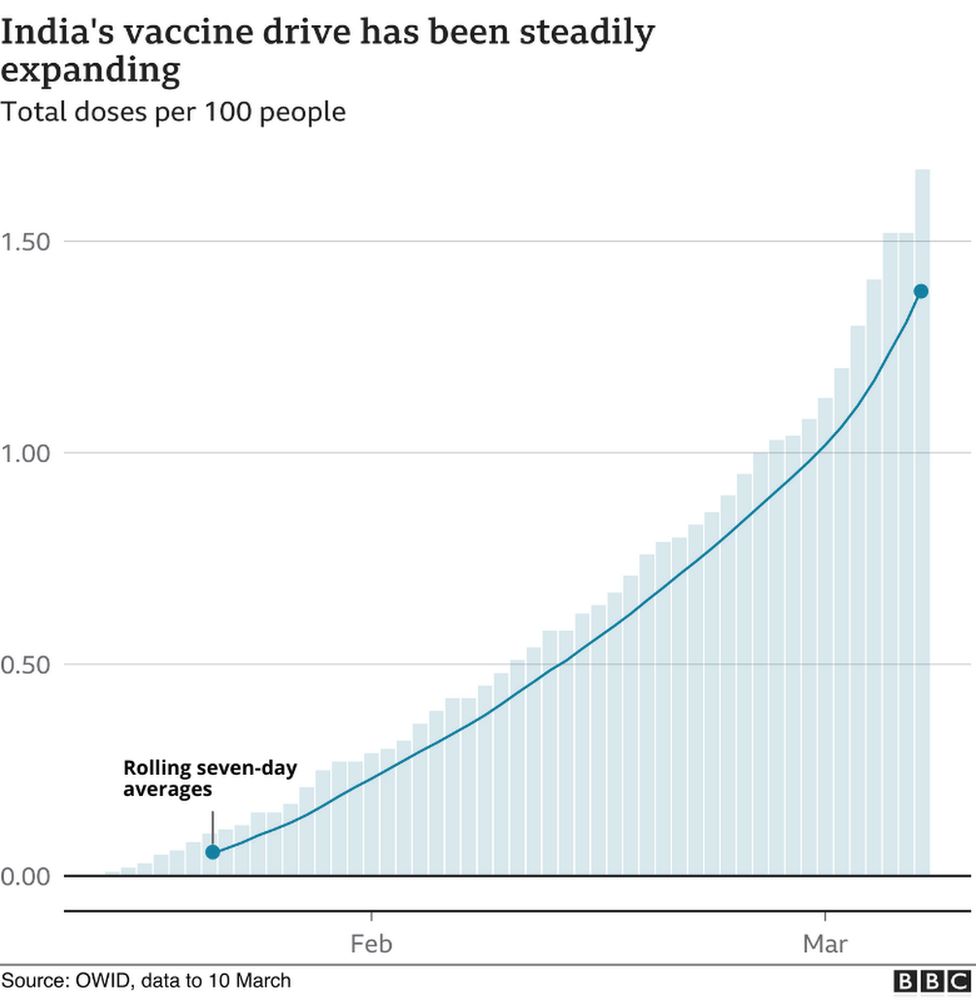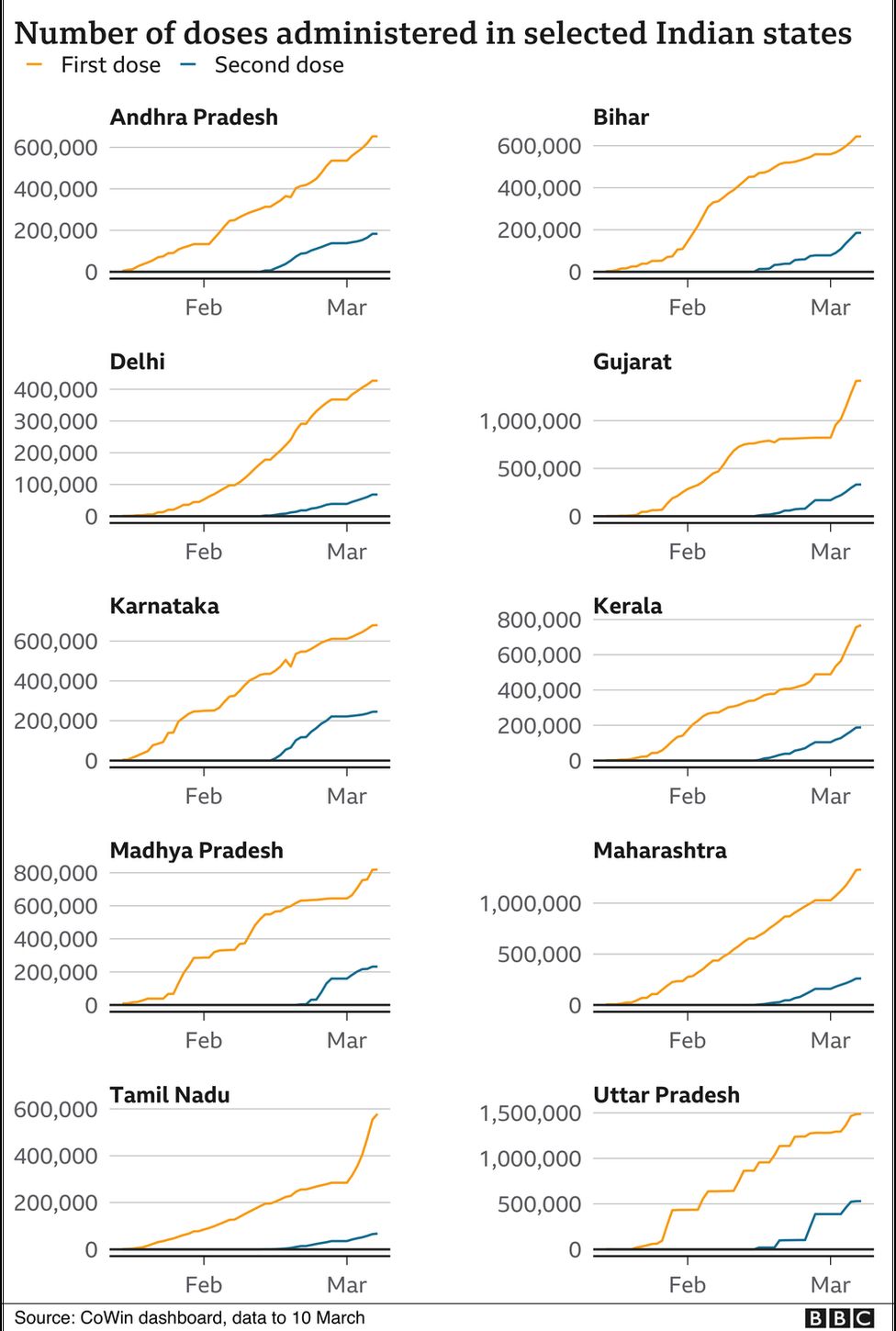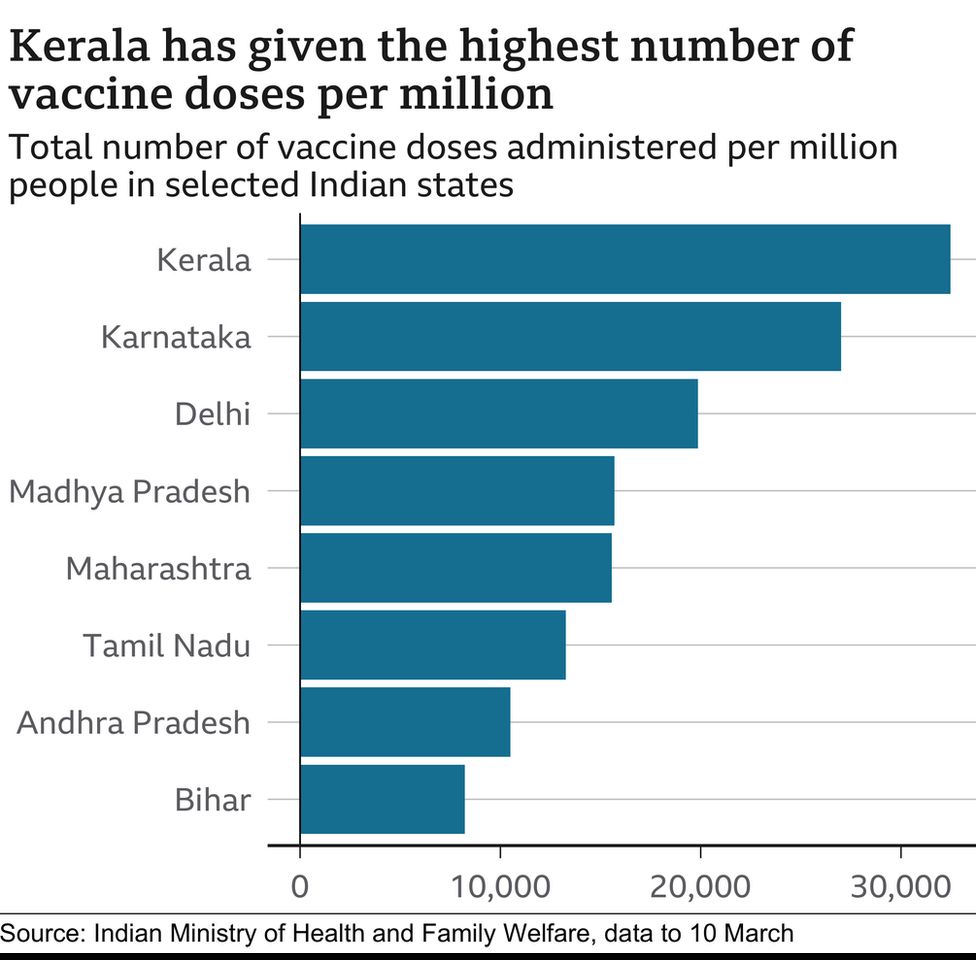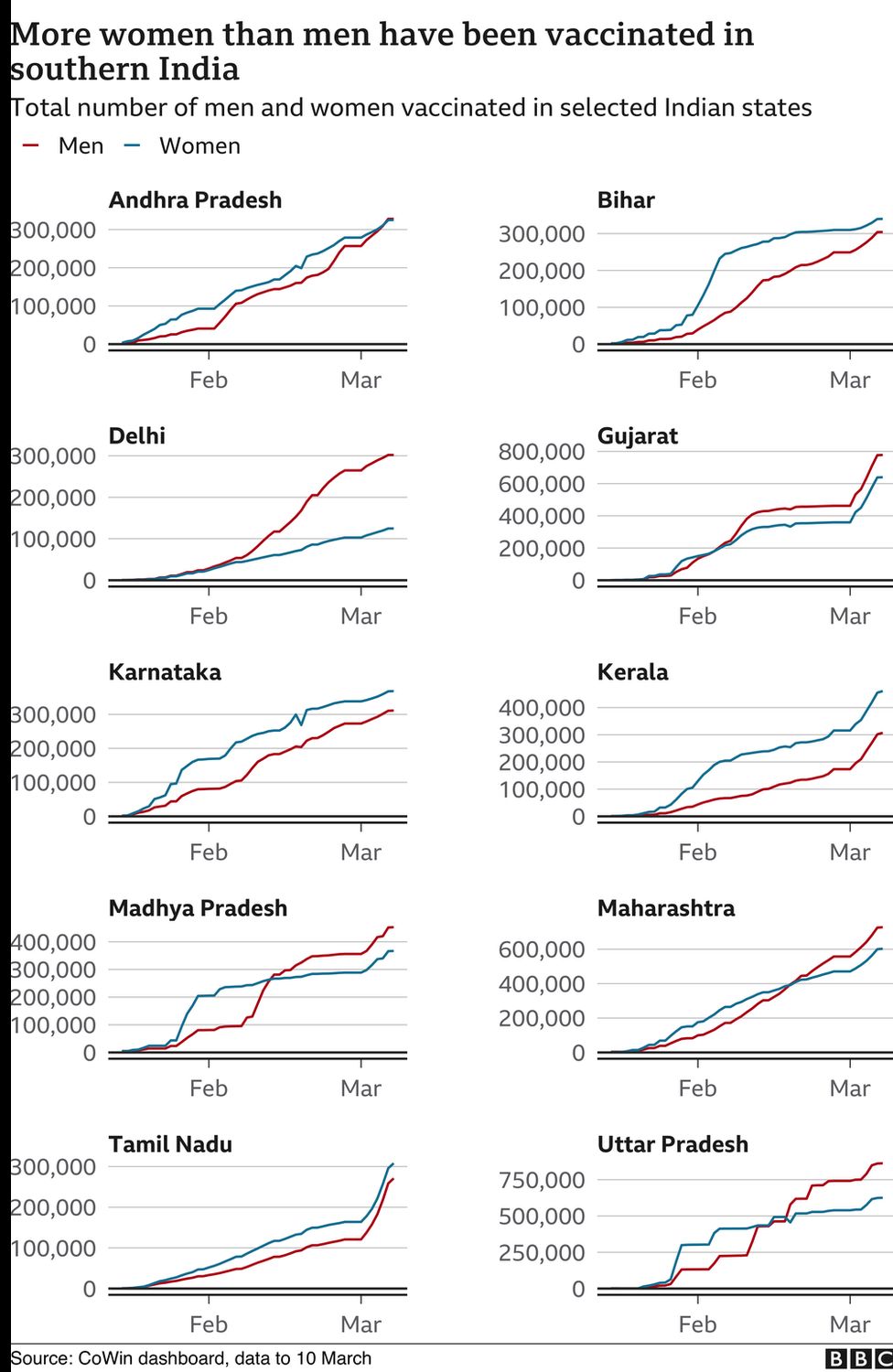
 i_need_contribute
i_need_contribute
Since the pandemic began, India has confirmed more than 11 million cases and over 157,000 deaths. The country has recorded the second-highest number of Covid-19 infections in the world after the United States.
Although caseloads have dropped sharply across the country, six states - Maharashtra, Kerala, Punjab, Karnataka, Gujarat and Tamil Nadu - are reporting a fresh surge in infections.
India launched its vaccination drive on 16 January, but it was limited to healthcare workers and frontline staff - a sanitation worker became the first Indian to receive the vaccine.
From March 1, the eligibility criteria expanded to include people over 60 and those who are between 45 and 59 but have other illnesses.
Vaccination is voluntary. State-run clinics and hospitals are offering free jabs but people can also pay 250 rupees ($3.4; £2.4)a dose at private facilities to get vaccinated.


The country's drugs regulator has given the green light to two vaccines - one developed by AstraZeneca with Oxford University (Covishield) and one by Indian firm Bharat Biotech (Covaxin). Several others candidates are at different stages of trials.
India is a vaccine powerhouse: it makes 60% of the world's vaccines and is home to half a dozen major manufacturers.
Prime Minister Narendra Modi, who's 70 years old, got his vaccine shot on 1 March. He was administered a jab of the indigenously developed Covaxin.
After receiving the jab, he urged people to take the vaccine when their turn came.
More than 20 million people have received at least one dose of the coronavirus vaccine so far.
The government aims to use up to 500 million doses to cover 250 million "priority people" by the end of July. India has about 150 days to administer two doses and meet its target.
Although the pace of vaccination has picked up - more than two million people were administered doses in a single day this week- experts say unless the drive is scaled up, the target could be missed.


Kerala has administered the most number of doses per million of population. Reports say there's a high demand for vaccination in the southern state and there are fears of an impending shortage.


More than 20 million people have registered for jabs, mostly through two government apps. Men accounted for more than half of the registrations.
But interestingly, in some states in southern India, more women than men have been vaccinated. The reasons are not clear.


However, reports suggest that a "class divide" has emerged in accessing the programme, with the poor staying away from getting the jabs in cities like Delhi, Mumbai and Bangalore.
Many of the poor have little information on how to register themselves and access the vaccine free of cost. Online registration could be an impediment for a lot of the people who don't own phones or use the internet.
"There's very little public health communication for the poor and the working class regarding the vaccines," says Radha Khan, an independent consultant working in the field of gender, governance and social inclusion.
The government is spending around $5bn for free doses at state-run clinics, public health centres and hospitals.
It has also bought millions of doses of two approved vaccines and provided funds to states for their vaccination programmes.
Vaccines come with side effects for some people.
India has a 34-year-old surveillance programme for monitoring such "adverse events" following immunisation. Experts say a failure to transparently report adverse effects could easily lead to fear-mongering around vaccines.
Until early February, India reported 8,483 "adverse events" after vaccination.
Forty six people have died and 51 were hospitalised after receiving jabs until February 26, according to the health ministry. Officials say none of these cases is "attributable to vaccination".